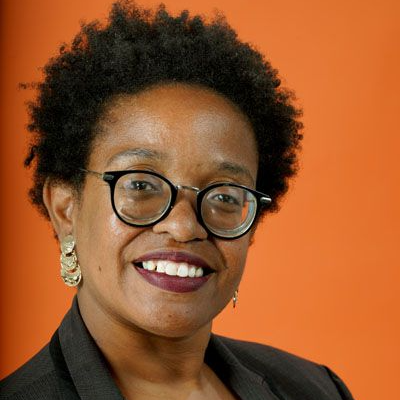Growing up watching TV and movies, it was easy to assume that hiring help around the house was either for rich people like the Carringtons of “Dynasty” and the Ewings of “Dallas” or successful-enough families like “The Brady Bunch” who had, well, a bunch of kids.
Then there were the strong societal messages of “the 24-hour woman,” as the jingle went in those slinky Enjoli perfume ads. According to the lyrics, we were supposed to bring home the bacon, fry it up in a pan and then assure our male partner that we were sufficiently sexy enough to remind him he was the one in charge. That last bit is paraphrased, but still.
But what if sometimes you don’t want to clean the pan or Swiffer every surface not covered by the furniture you’re too busy to ever sit on? There are some people who love to clean. I am not one of them. So is there shame, even as a non-rich person with only one child and a normal-size house, in outsourcing that work?
I don’t think so. I can still be considered a strong, capable provider. And I’m not alone.
If you Google “guilt about hiring a house cleaner,” you’re inundated with columns, Reddit forums and musings about why it’s OK. And I have since talked to a lot of people who consider it just another tool to managing life.
“I looked at it as giving me a head start on cleaning, just maintaining things, so I don’t have a dirty house to come home to,” said Abdul Ali, a local poet and veteran of cultural nonprofits, who is, like me, a single parent. “The floors are shining, smelling like lemon and pine, and it’s just wonderful.”
Read More
Ali admits there is “extra trepidation for those of us who grew up working class. ‘We never had this growing up. What is this tomfoolery? Have I now joined the elite?’ ” he said.
I feel this so deeply, as the proud descendant of those who preceded the so-called “working women” era because they were already working cleaning other people’s homes. Even earlier ancestors cleaned house before they were paid, whether or not the current administration wants you to recall that.
When we lived overseas in middle school, my parents hired a house cleaner for the first time in their lives, because they were making more money than they ever had and wanted to support people who needed the money more. But they were careful to pre-clean first, something Latisha Coates-Young of Baltimore did the first time she hired someone.
“I wore myself out trying to clean up,” the mother of two said. She didn’t want the housekeeper saying: “Girl, this lady’s house is a mess.” Coates-Young also grew up “with my mom and grandmother, putting on music and cleaning.” She assumed that doing it yourself was just part of tradition.
But in 2023, in the midst of a busy move, she thought again about getting cleaning help. “I want to come home to a clean house, to make me feel less overwhelmed,” she thought at the time. “That doesn’t mean that I don’t clean up or that I’m lazy.”
This isn’t a new conundrum. In 2000, Kathy Fitzgerald Sherman, a computer industry veteran turned attorney, published “A Housekeeper Is Cheaper Than a Divorce: Why You Can Afford Help and How to Get It.”
“I was trying to find time to write, and couldn’t, so I wrote down everything I was doing to manage the household that did not include child care,” said Sherman, who had two young children at the time. “The number I came up with was 39 hours,” she said.
That’s practically an entire unpaid workweek, a figure so startling she thought she’d counted wrong. But with research Fitzgerald Sherman found that 39 hours was, indeed, the average for stay-at-home mothers, and 32 hours for working mothers. She hired a housekeeper for 20 hours a week.
This was not popular with her husband or mother-in-law, who told her, “‘I paid my dues when my kids were young, and you should, too.’ ” But she stuck to her choice, and her outcomes were transformative.
“I wrote a book about it” and even got Ann B. Davis, who played Alice on “The Brady Bunch,” to write a blurb.
She said Americans have a “do it ourselves” mentality and don’t have an “it takes a village” instinct. The burden of this thinking falls on women.
“My husband wasn’t happy with it, but he wasn’t doing the work,” she said.
You don’t even have to be married or a parent to need the help. Zara Miller was reluctant to have someone help clean her Baltimore apartment in a building that was having a roach infestation, until she reconciled that she’d be paying for a service.
“You wouldn’t have reservations about someone bringing you food in a restaurant? Or someone fixing your window sill when it breaks?” she wrote me in an email. “I get it, cleaning FEELS different, it feels like a demeaning service, but that’s just it — it’s a feeling, nothing more.”
I’ve gotten used to the idea that, when I can afford it, it’s helpful just to have someone at least once a month to help keep things flowing. It’s not a bad thing not to be stressed all the time.
“At this stage in my life, I’ve been more intentional about spending time with my friends,” Coates-Young said. “As Black women, we spend so much time taking care of everyone else, it’s OK to say, ‘Girl, you need help. You don’t know how to pause.’ ”
“Think about the things we don’t have to worry about,” Abdul said. “It can fall into self-care. That is the resistance, taking care of yourself.”




Comments
Welcome to The Banner's subscriber-only commenting community. Please review our community guidelines.